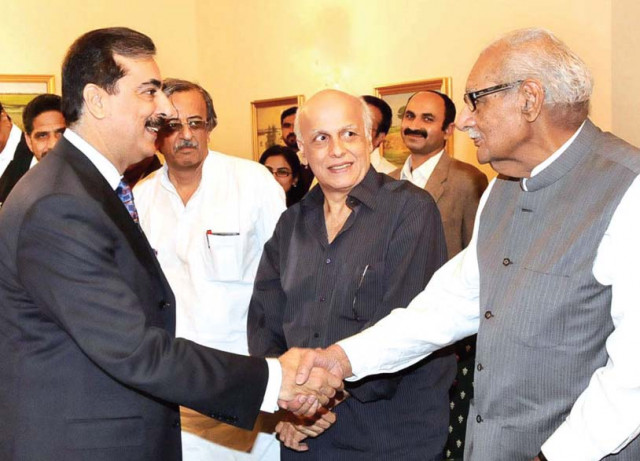Cricket diplomacy redux
Gilani genuinely wants to lower tension levels with India to be better able to cope with the problems.

TV channels — most of them right-wing and hostile towards India — have unleashed the catalogue of national grievances on their viewers, putting Kashmir on top, saying India will never give it up in the light of UN Security Council resolutions. They have reviewed past instances of cricket diplomacy and moaned over its negative results ‘because of India’s intransigence’. They think that it is no use going to India to watch cricket if India is not willing to talk seriously and meaningfully on outstanding bilateral issues. Of course, there is the accompanying ballyhoo about ‘amn ka chhakka’ (‘a six for peace’) by Dr Singh, and the general public relief at some release of tension following the invitation to Prime Minister Gilani.
The interior secretaries’ meeting that was to be the prelude to the India-Pakistan composite dialogue — that Pakistan has been insisting on —has ended in predictable deadlock. The Indian side has asked us — together with the rest of the world — to do something about Lashkar-e-Taiba (LeT) before any progress can be made but the court case against jailed LeT members seems to be going nowhere. Veteran Indian journalist Kuldip Nayar, who was in Pakistan recently, said that India will not yield on Kashmir, apart from giving it some measure of autonomy, if Pakistan agrees to do the same thing on its side. It is quite certain that the expectations some of us are attaching to the latest bout of cricket diplomacy are unrealistic. Both prime ministers are in trouble at home and both belong to governments which are perceived as being weak. Dr Singh is in deep trouble because of the corruption his party and its allies have been indulging in. His Pakistani counterpart has troubles that include corruption allegations that cut pretty close to him personally; and there is the threat of being toppled from inside the parliament before his term is complete. What sets them apart is India’s prosperity and high growth rate, popularity in the world community and a tolerable internal law and order situation. Mr Gilani is facing a situation that looks like an endgame for the state itself. So, one may ask, why do they want to meet?
They want to meet for separate reasons. Quite possibly, Dr Singh wants the passionate India-Pakistan cricket duel to distract a public shocked by his government’s corruption. Mr Gilani genuinely wants to lower tension levels with India to be better able to cope with the problem of intra-state conflict. They have met in the past and created good vibes, but Dr Singh has not come of these atmospherics unscathed. What will they do this time that will benefit them both? If the Mohali match passes without an incident and the two prime ministers issue a friendly statement afterwards, they will have achieved a good groundbreaking for what might lie ahead.
Diplomacy will bear fruit if the two move ahead with more initiatives of the same kind. As one columnist writing in this paper from India put it: “Can both sides do what they have been claiming on the front pages of newspapers forever, which is to separate the desires of ordinary people — play cricket, travel to each other’s countries, perhaps to Moenjodaro, or Ajmer Sharif, go out for dinner in Lahore or Amritsar — from the high politics of government?” India has taken a step back from its ‘precondition’ of leashing Lashkar-e-Taiba; Pakistan should respond by facilitating cross-border movement.
The reality is that Shining India (while a flawed picture) has captured the world’s imagination and the country’s rapid economic growth rate has meant that many of its citizens do not really care much for their neighbours. It is in Pakistan’s interest to make the peace process meaningful because, in doing so, it can ultimately benefit from the economic cooperation and enhanced trade ties that will necessarily come about as a result of a lasting peace.
Published in The Express Tribune, March 29th, 2011.















COMMENTS
Comments are moderated and generally will be posted if they are on-topic and not abusive.
For more information, please see our Comments FAQ